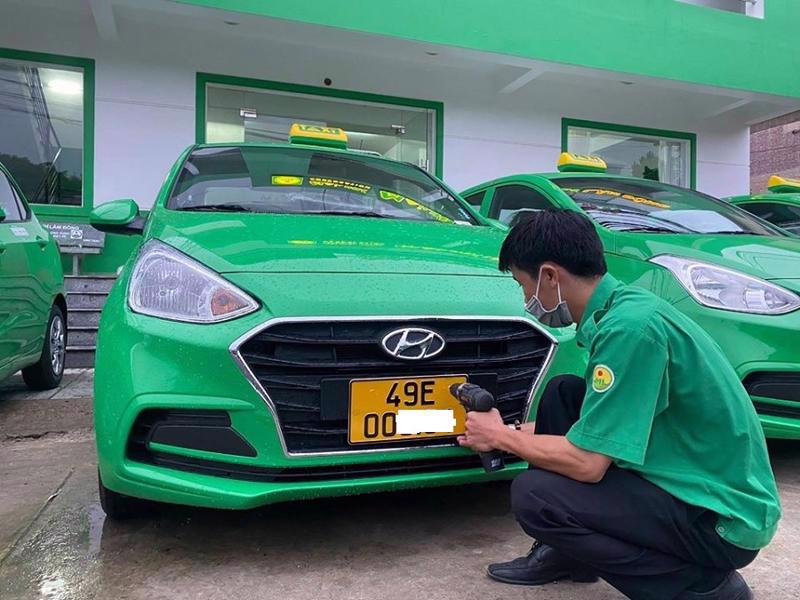According to Mordor Intelligence’s Vietnam Ride Hailing 2024 report, the size of Vietnam’s ride hailing market is expected to reach $880 million this year and $2.16 billion by 2029, for a compound annual growth rate (CAGR) of 19.5 per cent during the 2024-2029 period.
With a rapidly-growing urban population and a general lack of quality public transport services, demand for ride hailing services has increased steadily in recent years.
The increasing preference in the population for travel in personal vehicles, driven by rising demand for convenience, and an increasing number of tourists in Vietnam have been key factors behind the development of the country’s ride hailing market.
Higher demand for travel and the emergence of a young population with sound knowledge about technology have also promoted the use of tech-based ride-hailing apps in Vietnam, in particular platforms such as the Green SM electric taxi company, Grab, and Gojek.
Moreover, both the ride-hailing and delivery market have become more competitive as a result of the increasing use of smartphones, driving up demand for digital services. Many players have focused on launching new services and investing in expanding routes and deliveries as well as digital financial services.
In December, Green SM officially launched its Green Express delivery services, using e-bikes, via the Green SM app. The service has been rolled out simultaneously in five cities and provinces where Green SM electric vehicle services are already operating.
Vietnam’s rising urban population and higher disposable incomes have led to growing demand for convenient transport options, especially among city commuters and young professionals. Car travel provides a comfortable mode of transport that caters to the changing preferences of Vietnamese consumers.
Hatchbacks, sedans, SUVs, and MPVs as well as more luxurious cars are among the popular passenger vehicles provided by major ride-hailing providers in the market, with sedans accounting for the majority in 2023. The increasing appearance of electric vehicles across Vietnam has also had a positive impact on the ride-hailing market.
In 2022, the total number of vehicles sold in Vietnam reached 358,000, including 284,000 passenger vehicles.
Ride-hailing services have helped enhance convenience for customers. With just a few taps on a smartphone, passengers can readily book a vehicle, keep track of the driver’s location in real time, and pay for the trip online.
Vietnam’s internet coverage reached nearly 80 per cent in 2023, with use being primarily on mobile devices.
The rapid expansion of green transportation nationwide and the rise in demand for ride-hailing services are forecast to further boost market growth. Some domestic companies are building different business strategies to increase their market share.
Last October, the Green & Smart Mobility JSC and Green SM also launched electric taxi services in Laos, with a fleet of 150 VinFast electric vehicles.
App-based ride-hailing services have become an indispensable part of daily life in Ho Chi Minh City, the most populous city in Vietnam, over the past decade, providing a significant customer base for ride-hailing service providers.
The southern city has also been witnessing a rapid increase in traffic jams. According to the National Traffic Safety Committee, traffic congestion causes an estimated $6 billion in damage to the city each year. Meanwhile, its population is expected to rise significantly in the short and long terms, while it is also predicted to witness significant growth in internet use as a result of its rising population.
The city’s average population stood at nearly 9.38 million in 2022, figures from the General Statistics Office reveal. The Ho Chi Minh City Department of Information and Communications has estimated that 90 per cent of local residents will use broadband internet by 2025, which will have a positive impact on ride-hailing services.
The government is encouraging the use of electric vehicles as a key solution to deal with transport challenges. It has also set a target of reducing greenhouse gas emissions and traffic congestion while improving the living conditions for people in urban areas. Such efforts will help mitigate the impact of climate change and facilitate the expansion of ride-hailing services in the city.
VinFast, which is now listed on the NASDAQ stock exchange, is actively promoting the application of electric vehicles in Vietnam’s ride-hailing industry. The company offers discounted prices and interest-free loans for purchases of electric motorcycles, to encourage their greater use. However, investors are carefully studying the company’s ability to expand its electric vehicle production scale and earn profits from these initiatives.
According to the Mordor Intelligence report, Vietnam’s ride-hailing market is now at a moderate level with the participation of companies such as Grab, Green SM, Be Group, Go-Viet, and FastGo. The biggest competitor to Grab in the future may well be Green SM, which is the first domestic electric taxi company in the country. Green SM is actively expanding its presence through strong partnership development, and has collaborated with several taxi companies around Vietnam, including Lado Taxi, Son Nam, Thanh Ha Transport, ASV Airport Taxi, En Vang, and Sapa Green Taxi.
Others in the market have been involved in mergers and strategic cooperation activities while also launching new products and services to outperform their competitors. Last July, Grab announced its intention to acquire all of Trans-cab Holdings’ shares, which would include Trans-cab’s rental car and taxi operations, maintenance workshop, and gas station activities, which will now be carried out through a subsidiary of Grab.









 Google translate
Google translate